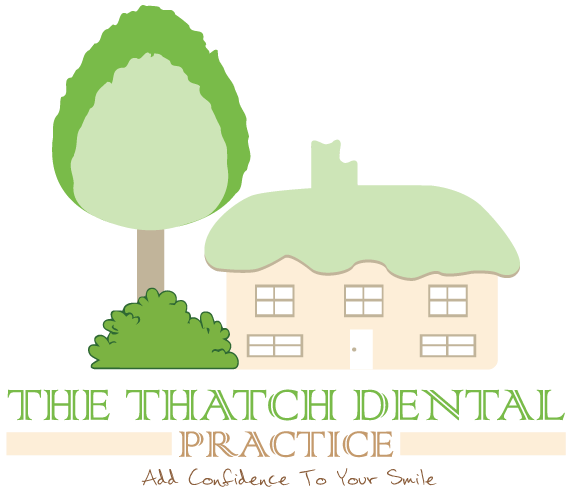
Problem
Losing teeth is more common than most people think — and it’s not just an “old age” issue. According to the World Health Organization, nearly 20% of adults aged 35–44 have severe tooth loss, and by age 60, that number rises dramatically. Missing teeth can make chewing certain foods difficult, affect speech clarity, and even cause facial muscles to sag over time.
If you’ve been avoiding social situations, covering your mouth when speaking, or sticking to soft foods because chewing is uncomfortable, you’re not alone. Many people face the same challenges every day. But ignoring the issue only makes things worse — gaps in your teeth can cause the remaining ones to shift, further affecting your bite and jaw health.
The thought of getting dentures might make you nervous. You might have heard outdated stories about “false teeth” being uncomfortable or looking unnatural. The truth is, modern dentures have improved significantly — but it’s important to know exactly what to expect so you can make the right decision.
Agitate
Let’s be honest — tooth loss doesn’t just affect your smile. It impacts your confidence, nutrition, and health. If you’ve been avoiding certain foods like apples, nuts, or meat because they’re too hard to chew, you may already be missing out on essential nutrients. Poor chewing ability has been linked to digestive problems and even reduced overall health.
Speech is another hidden challenge. Missing teeth can cause you to slur or whistle certain words, making conversations awkward. Over time, many people unconsciously start speaking less, avoiding phone calls, or declining invitations — simply because they feel self-conscious.
The psychological impact can be even greater. Research published in the Journal of Prosthetic Dentistry found that tooth loss is associated with lower self-esteem and reduced quality of life. In other words, it’s not “just teeth” — it’s a vital part of how you live and interact with others.
But here’s the good news: with modern dentures, these problems can be addressed effectively, often in just a few dental visits. The key is understanding your options and knowing how to make them work for your lifestyle.
Solution
Dentures — commonly called “false teeth” — are removable replacements for missing teeth and surrounding tissues. They come in two main types:
- Complete Dentures – Used when all teeth are missing in either the upper or lower jaw (or both).
- Partial Dentures – Used when some natural teeth remain; they fill in the gaps and prevent remaining teeth from shifting.
How Dentures Are Made
Getting dentures isn’t an overnight process. Here’s the typical step-by-step journey:
- Initial Consultation – The dentist examines your mouth, takes impressions, and discusses the best type of denture for you.
- Mouth Preparation – This might include extractions, gum treatment, or smoothing bone ridges to ensure a proper fit.
- Impressions & Measurements – Molds of your gums and bite are taken to make dentures that fit comfortably.
- Trial Dentures – A temporary model is made for you to test. Adjustments are done for comfort and appearance.
- Final Dentures – The permanent set is created and fitted, followed by fine-tuning over a few visits.
Case Study: Restoring Function and Confidence
Patient Name: Margaret, 67 (UK)
Background: Margaret had been missing several upper teeth for years. Eating steak or apples was impossible, and she often avoided smiling in family photos. She tried a basic denture 15 years ago but found it uncomfortable and stopped using it.
Treatment Plan: After a full dental assessment, her dentist recommended a new upper complete denture with improved materials and a more accurate fit.
Outcome: Within two weeks of receiving her new dentures, Margaret reported eating a wider variety of foods without discomfort. Her speech improved, and she started attending her local social club again. At a 3-month review, she said, “I didn’t think dentures could feel this natural. I wish I’d done this sooner.”
The Benefits of Modern Dentures
- Better Fit: Advances in digital scanning and manufacturing allow for precise fitting, reducing sore spots.
- Natural Appearance: Tooth shapes, shades, and gum colors can be customized.
- Improved Comfort: Lightweight materials mean less bulk in the mouth.
- Enhanced Chewing: While not as strong as natural teeth or implants, modern dentures significantly improve chewing ability.
Adjusting to Dentures
Wearing dentures for the first time can feel strange. Common adjustments include:
- Speech Practice: Reading aloud helps the tongue adapt.
- Chewing Technique: Start with soft foods and cut them into smaller pieces.
- Sore Spots: Minor discomfort is normal at first; your dentist can adjust the fit.
- Cleaning Routine: Brush dentures daily with a soft brush and soak them overnight in a cleaning solution.
Cost Considerations
The price of dentures varies widely depending on materials, type, and location. In the UK, NHS dentures can cost around £650–£985, while private dentures range from £1,200 to over £2,000. In the US, complete dentures can cost $1,800 to $3,000 per arch.
While dentures are more affordable than dental implants, they may need replacement every 5–8 years due to wear and changes in gum shape.
Alternatives to Dentures
Dentures are not the only option for missing teeth. Alternatives include:
- Dental Implants: Surgically placed into the jawbone; more stable but more expensive.
- Implant-Supported Dentures: A hybrid option combining implants and dentures for better stability.
- Dental Bridges: Fixed replacements anchored to natural teeth; suitable for partial tooth loss.
Conclusion
Tooth loss can disrupt daily life, from what you eat to how you speak and smile. But it’s not a permanent sentence to discomfort or embarrassment. Modern dentures offer a practical, cost-effective solution to restore function and confidence.
If you’ve been delaying treatment because of outdated perceptions about “false teeth,” it’s worth booking a consultation with a dentist who uses modern techniques. As Margaret’s case shows, dentures can make a significant difference — not just for your smile, but for your quality of life.








